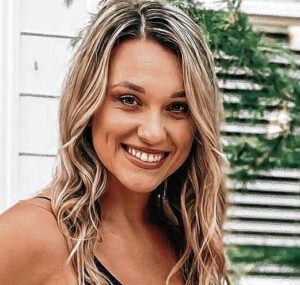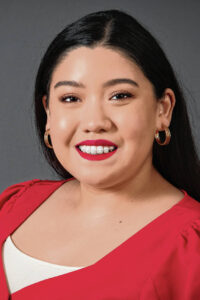State leaders are promoting a change that would give all eligible students the chance to participate in the 21st Century Scholars program, an early college promise program designed to make college more affordable.
Sen. Eddie Melton’s Senate Bill 435 would automatically enroll eligible Indiana students into the program. The bill was open for amendments and a vote in the Senate Education and Career Development Committee on Wednesday.
Melton addressed the committee Feb. 8 and said boosting college attainment and getting more young people on the pathway to college is critical in our state.
“For both the Senate Democratic Caucus and the Black Legislative Caucus, it is a top priority to get legislation like this passed this year,” Melton said. “By automatically enrolling students in the 21st Century Scholars program, more of our kids, especially those in Black and other minority communities, will be able to access college with robust financial support.”
Eligible students who meet requirements receive a two- or four-year scholarship that pays up to 100% tuition at an eligible Indiana college or university and part of the tuition at private or independent colleges, according to learnmoreindiana.org/scholars.
Currently, eligible students must sign up for the program during middle school, and 40% of Indiana students qualify for the state’s 21st Century Scholars program. Statistics, however, show only half of those eligible students pursue the opportunity.
Allison Kuehr, communications director for the Indiana Commission for Higher Education, said the proposed change is to automatically enroll all financially eligible seventh and eighth grade students into the program.
“Students will still need to sign the 21st Century Scholar pledge with consent from a parent or guardian and complete the required action steps to maintain their scholarship throughout high school, but the initial enrollment barrier will be removed,” Kuehr said.
Tara DeWitt, a graduate of Crothersville High School, benefited from the 21st Century Scholars program and is now a second grade teacher at Crothersville Elementary School in her fourth year of teaching.
 DeWitt
DeWitt
“I do not recall receiving the (21st Century Scholars) paperwork or remember discussing it with any teachers or counselors in middle school,” DeWitt said. “Counselors or teachers could have discussed it, but I do not remember. “
She knew it was a scholarship but was unaware of the importance of 21st Century Scholars at the time and did not know what the program consisted of or what it meant, she said.
“Throughout college, the requirements were to have 30 credit hours with attainable grades, and 30 credit hours in college as a working student was challenging,” DeWitt said. “I maintained the 21st Century Scholars status for a few years, but due to a previous car accident, I was unable to maintain the requirements but was then able to receive the next scholarship.”
She said without the 21st Century Scholars program or the scholarship that was given to her, she does not believe she would have achieved all she has today.
DeWitt knew at an early age she wanted to attend college and earn a degree and she wanted to work with children, but she didn’t know what career choice was for her. When she received her acceptance letter, she was ecstatic, she said.
“I grew up in a small community, and Indiana University was a dream, but at the time of my decision, IU was not it,” she said. “It was very large, not close to home and away from my friends and family. Indiana University Southeast allowed me to stay close to home, close to my friends and family and it had much smaller class sizes.”
Seymour resident Ashley Caceres also knows the importance of the 21st Century Scholars program and is the first person from her family to attend college.
 Caceres
Caceres
She currently works as the bilingual outreach and enrollment specialist for Covering Kids and Families of Jackson County United Way and Su Casa Indiana.
A 2014 graduate from Seymour High School, she recalls receiving the 21st Century Scholars application from a middle school counselor but doesn’t remember receiving a lot of reminders about it.
“I actually filled most of the paperwork out myself, but I received help from Iveth Vazquez when I was in middle school,” Caceres said. “She is a community leader in the Latino community in Jackson County, and she is a huge advocate for education access to those that may miss out on those opportunities.”
She said when she was in middle school, her mom’s English wasn’t the best at the time, so the paperwork was a bit challenging for the two of them. It was a learning curve, but once her brothers were ready to apply for the program, they were more prepared to fill out the paperwork.
“I always knew I wanted to go to college, but it was really hard for me to visualize myself in higher education,” Caceres said. “I do believe this scholarship helped make that goal more realistic. When I found out I was accepted into my college of choice, it really felt real.”
She knew college was expensive, so knowing she had been accepted into the program of her choice with scholarships to pay for it was such a relief, she said.
Caceres graduated from Ball State University in 2018 with a Bachelor of Science in architecture, and she also received minors in sociology and social and environmental justice.
She said it would be amazing if Senate Bill 435 goes through, especially since there are struggles with being a first-generation college student when you don’t have someone in your home who went through the process of applying.
“You end up being the one paving the way for your siblings, and that’s a lot of pressure to put on a seventh- and eighth-grader,” she said. “I also believe language and literacy barriers can also create challenges for families. If students qualify and they are automatically enrolled, that would be an amazing solution to reach those students that would otherwise not receive it.”
Caceres said the scholarship has had a huge impact on her and was one of the first indicators that higher education was possible for someone like her.
“I was very fortunate to have the support of my family, but I knew that paying for school would ultimately be up to me,” she said. “This scholarship created a foundation for me to try my best and do really well in high school and college.”
She said something she wishes she had done more of as a middle-schooler was ask more questions and ask for more help.
“I would say to students thinking about applying for this scholarship to please reach out to someone for help,” Caceres said. “If it cannot be your parents, please reach out to a teacher, a counselor or an organization.”
